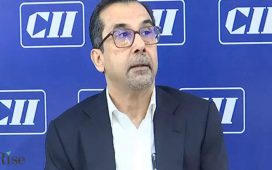
One such measure is the requirement for lenders to provide their borrowers a key fact statement (KFS) containing the important information regarding a loan agreement, including the all-in cost of the loan, in simple and easy to understand format, the Statement on Developmental and Regulatory Policies issued by the RBI stated. “Currently, KFS is specifically mandated in respect of loans by scheduled commercial banks to individual borrowers; digital lending by REs; and microfinance loans. Now, it has been decided to mandate all REs to provide the ‘Key Fact Statement’ to the borrowers for all retail and MSME loans. Providing critical information about the terms of the loan agreement, including all-inclusive interest cost, shall greatly benefit the borrowers in making an informed decision,” it added.
Applauding the move, Raja Debnath, Managing Director, Veefin Solutions, said hidden costs will be brought to light via KFS, enabling businesses to plan their finances in a better way. “Initially, this lack of transparency often led to financial stress and hindered informed decision-making for MSMEs. For example, oftentimes MSMEs have been unaware of charges like foreclosure fees, which can be substantial and significantly impact their bottom line. By requiring lenders to disclose all charges upfront in a standardised format, MSMEs may finally understand the full all-inclusive cost of their loans. This also empowers them to compare offers effectively, negotiate better, and prevent unfavorable circumstances in the future.”
Industry stakeholders spoke about how this would benefit retail and MSME loans and would help enhance transparency on the cost of loan.
Vinod Chopra, National Executive Committee Member-CMSME, FICCI, explained how the increase in interest rates is adjusted frequently and without any consent or intimation to the borrower. Chopra said KFS should be monitored frequently. “There are various instances of deduction of charges that is done directly from the account of the borrower by the bank without the consent or any pre-intimation. Besides there are issues on the exorbitant rate of interest and unreasonable charges which need to be strictly regulated on credit card or loan on credit card and the same is a whopping 36% per annum in many cases if there is a default of even 1 day.” Chopra said bankers will adhere to the KFS and the transparency diktat by the RBI will provide an all-inclusive interest cost. “As far as the banks are concerned, they need to be very clear in terms of the various charges levied by them, and also few of them being unwarranted variables like processing fees, onboarding charges, valuation charges etc,” he added.Industry observers called this a win-win situation for both the lenders and borrowers. HP Singh, CMD at Satin Creditcare Network Ltd, said it will bolster financial literacy, as it will help familiarise borrowers with key loan and financial terms, raising financial awareness and help in prudent decision making among borrowers. “Given that consumer protection is one of the main lookouts of the RBI, this step will safeguard the interests of borrowers with clear and comprehensive information, preventing potential instances of mis-selling, hidden charges or predatory lending practices,” he added.Prashant Muddu, Managing Director & CEO of Jocata, a digital lending transformation platform, said the industry is set to witness further tightening of the regulatory environment, and a stronger policy push for banks, NBFCs, and FinTechs towards priority sector lending.










